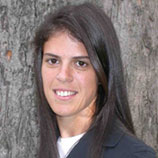 I started my Ph.D. at McGill in 2003 and worked on science and the editing of Shakespeare in eighteenth-century England. My co-supervisors, Peter Sabor and Paul Yachnin, were very supportive, approachable and responsive, providing insightful and often brilliant feedback on drafts in one-on-one meetings, generously supporting conference travel, and creating an atmosphere that was inspirational in making me believe in my intellectual potential. Their support will have a life-long effect in motivating me to work to fulfill that potential. The Burney Centre and the Shakespeare team created a work environment that provided both a sense of community and a professional atmosphere. My funding came from RAships there, TAships, SSHRC and McGill.
I started my Ph.D. at McGill in 2003 and worked on science and the editing of Shakespeare in eighteenth-century England. My co-supervisors, Peter Sabor and Paul Yachnin, were very supportive, approachable and responsive, providing insightful and often brilliant feedback on drafts in one-on-one meetings, generously supporting conference travel, and creating an atmosphere that was inspirational in making me believe in my intellectual potential. Their support will have a life-long effect in motivating me to work to fulfill that potential. The Burney Centre and the Shakespeare team created a work environment that provided both a sense of community and a professional atmosphere. My funding came from RAships there, TAships, SSHRC and McGill.
I finished my program in 2006, in about four years. Since 2008, I’ve been a part-time (sessional) professor at the University of Ottawa, where I generally teach, to my great delight, five to six courses a year (technical report writing and literature). My time outside of teaching is currently spent mostly with my children, but I keep copious notes for research and writing projects which I hope to spend more time working on as my children mature.
In some ways, I’m happy I didn’t fully realize how dismal the job market was. Had I known, I might have felt the pressure to make a different career choice such as law or administration instead of pursuing what I love most. Since my family is based in Ottawa, I have not fully participated in the job market, but I have questions about it which I feel Canadian universities should rigorously address and proactively communicate to students: what can graduates of English Ph.D. programs realistically expect on the job market? How are graduates of Canadian universities viewed compared to graduates of top American universities?
I also feel universities should take steps to encourage a professional atmosphere and discourage isolation. Providing permanent spaces on campus where students are expected to work can be instrumental in helping students to approach the Ph.D. professionally and work productively to complete their Ph.D. in a timely manner.
 I started my Ph.D. at McGill in 2003 and worked on science and the editing of Shakespeare in eighteenth-century England. My co-supervisors, Peter Sabor and Paul Yachnin, were very supportive, approachable and responsive, providing insightful and often brilliant feedback on drafts in one-on-one meetings, generously supporting conference travel, and creating an atmosphere that was inspirational in making me believe in my intellectual potential. Their support will have a life-long effect in motivating me to work to fulfill that potential. The Burney Centre and the Shakespeare team created a work environment that provided both a sense of community and a professional atmosphere. My funding came from RAships there, TAships, SSHRC and McGill.
I started my Ph.D. at McGill in 2003 and worked on science and the editing of Shakespeare in eighteenth-century England. My co-supervisors, Peter Sabor and Paul Yachnin, were very supportive, approachable and responsive, providing insightful and often brilliant feedback on drafts in one-on-one meetings, generously supporting conference travel, and creating an atmosphere that was inspirational in making me believe in my intellectual potential. Their support will have a life-long effect in motivating me to work to fulfill that potential. The Burney Centre and the Shakespeare team created a work environment that provided both a sense of community and a professional atmosphere. My funding came from RAships there, TAships, SSHRC and McGill.
I finished my program in 2006, in about four years. Since 2008, I’ve been a part-time (sessional) professor at the University of Ottawa, where I generally teach, to my great delight, five to six courses a year (technical report writing and literature). My time outside of teaching is currently spent mostly with my children, but I keep copious notes for research and writing projects which I hope to spend more time working on as my children mature.
In some ways, I’m happy I didn’t fully realize how dismal the job market was. Had I known, I might have felt the pressure to make a different career choice such as law or administration instead of pursuing what I love most. Since my family is based in Ottawa, I have not fully participated in the job market, but I have questions about it which I feel Canadian universities should rigorously address and proactively communicate to students: what can graduates of English Ph.D. programs realistically expect on the job market? How are graduates of Canadian universities viewed compared to graduates of top American universities?
I also feel universities should take steps to encourage a professional atmosphere and discourage isolation. Providing permanent spaces on campus where students are expected to work can be instrumental in helping students to approach the Ph.D. professionally and work productively to complete their Ph.D. in a timely manner.
Discussion